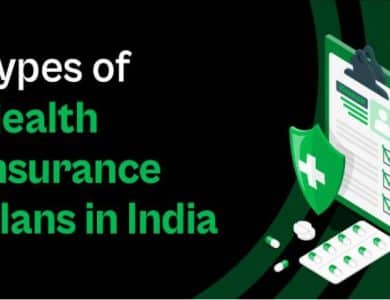An expert explains the significance of enrolling in health insurance prior to 2024

Introduction
In a nation where the healthcare landscape is dynamic and evolving, having a robust health insurance policy is akin to fortifying oneself against life’s uncertainties. This blog serves as a comprehensive guide, specially tailored for beginners, unravelling the importance of early enrollment in health insurance and providing insights into choosing the best health insurance policy in 2024.
The Significance of Early Enrollment:
Financial Safeguard:
Enrolling in health insurance early offers a financial safety net, shielding individuals from the potentially exorbitant costs of medical treatments. Health emergencies can strike at any age, and insurance ensures one can access quality healthcare without substantial out-of-pocket expenses.
Coverage for Pre-Existing Conditions:
Health insurance plans usually come with waiting periods for pre-existing conditions. By enrolling early, individuals can serve these waiting periods sooner, ensuring coverage for existing health conditions when needed. Delaying enrollment might lead to complications in obtaining coverage for such conditions.
Premium Advantage:
Health insurance premiums are typically age-dependent. Enrolling at a younger age often translates to lower premiums. This makes the insurance more affordable and locks in a more favourable rate, protecting against potential premium hikes that may occur with age.
Accrual of No-Claim Bonus:
No-claim bonuses are incentives provided by insurers for policyholders who have yet to make any claims during a policy year. By enrolling early and maintaining a healthy lifestyle, individuals stand to benefit from the gradual accrual of these bonuses, leading to increased coverage or reduced premiums in the long run.
Comprehensive Coverage for Future Risks:
Early enrollment allows individuals to secure comprehensive coverage for a wide range of health risks that may arise in the future. From unexpected illnesses to accidents, a well-structured health insurance policy ensures that one is prepared for diverse medical contingencies.
Beginner’s Guide to Choosing the Best Health Insurance Policy in 2024:
Understanding Coverage:
Inpatient and Outpatient Coverage:
A robust health insurance policy should cover inpatient (hospitalization) and outpatient expenses. This includes diagnostic tests, consultations, and medications sought without hospitalization.
Pre and Post-Hospitalization Expenses:
Look for policies that cover not only the hospitalization expenses but also the pre and post-hospitalization costs. This ensures a more comprehensive coverage umbrella.
Critical Illness Coverage:
Consider policies that offer coverage for critical illnesses. These policies provide a lump sum on diagnosis, offering financial support during challenging times.
Customization and Flexibility:
Customization Options:
The best health insurance policies are those that allow for customization based on individual needs. Look for policies that offer a variety of add-ons and riders, enabling tailoring to specific health requirements.
Family Coverage:
If applicable, consider policies that extend coverage to the entire family. Family health insurance ensures that the well-being of all family members is protected under a single policy.
Maternity Coverage:
For individuals planning a family, policies with maternity coverage are crucial. Ensure that the policy covers pre and post-natal expenses, including delivery costs.
Network Hospitals and Cashless Facilities:
Network Hospital Coverage:
Opt for policies that have an extensive network of hospitals. This ensures that policyholders have easy access to quality healthcare facilities without bearing the financial burden upfront.
Cashless Facilities:
Policies offering cashless hospitalization are advantageous. This feature allows policyholders to avail of medical services without making any payments during treatment. The insurance provider settles the bills directly with the hospital.
Exclusions and Waiting Periods:
Exclusions:
Thoroughly understand the exclusions mentioned in the policy document. Different policies have different exclusions, and being aware of these ensures no surprises during claims.
Waiting Periods:
Take note of waiting periods, especially for pre-existing conditions. Different policies have varying waiting periods; understanding these is essential to make informed decisions.
Claim Settlement Ratio and Reputation of the Insurance Provider:
Claim Settlement Ratio:
The claim settlement ratio is one of the essential metrics that reflects the percentage of claims settled by an insurer against the total number of claims received. Opt for insurers with a high claim settlement ratio, which indicates a higher probability of claims being honoured.
Insurer’s Reputation:
Research the reputation of the insurance company. Customer reviews, feedback, and the company’s history in the market can provide insights into the insurer’s reliability and customer-centric approach.
Technology and Customer Service:
Digital Platforms:
In the digital age, opt for insurers with user-friendly digital platforms. This facilitates easy policy management, renewal, and online claims processing.
Customer Service:
Evaluate the customer service responsiveness of the insurer. Prompt and effective customer service is vital, especially during emergencies and the claims process.
Comparative Analysis:
Check Carefully
Embarking on choosing a health plan for the first time in India warrants meticulous considerations. As the healthcare landscape evolves, selecting the right plan demands a nuanced understanding of individual needs and the intricacies of available policies.
First and foremost, comprehending the coverage spectrum is crucial – from inpatient and outpatient benefits to including critical illnesses. Attention to pre and post-hospitalization expenses and customization options tailored to individual health requirements contribute to a comprehensive and practical health insurance choice.
Moreover, prospective policyholders must delve into the network of hospitals associated with the plan, ensuring accessibility to quality healthcare facilities. Evaluating waiting periods, exclusions, and the insurer’s claim settlement ratio provides insights into the policy’s reliability.
The reputation of the insurance company, coupled with the convenience of digital platforms and customer service responsiveness, further refines the decision-making process. In this intricate dance of health insurance selection, a comparative analysis of multiple policies and, if needed, consultation with experts become guiding lights, ensuring that the chosen health plan aligns seamlessly with both immediate health concerns and long-term financial well-being.
Conclusion
Enrolling in health insurance is a strategic move towards safeguarding one’s health and financial well-being. The beginner’s guide to choosing the best health insurance policy in 2024 emphasizes the need for a holistic understanding of coverage, customization options, network facilities, exclusions, and the insurer’s reputation. By following this guide, individuals can navigate the complex landscape of health insurance in India, ensuring they make wise decisions aligned with their health needs and financial capabilities.




